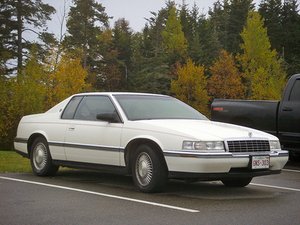Hi @elderado_99 ,
If you have a DMM (digital multimeter) you can check that the battery is being charged correctly.
With the engine not running, connect the meter across the car’s battery terminals and measure the battery voltage. A good battery should measure ~12V DC. Anything <11.5 is not good.
Next, disconnect the meter from the battery and jump start the car and then with the jump starter disconnected and with the engine running, connect the meter across the car’s battery terminals.
Be safety aware when you do this as the engine is running! Ensure that the vehicle’s transmission is in Park (or Neutral if MT) and that the handbrake (aka emergency brake) is firmly applied
You should measure somewhere between 13.8-14.5V DC.
If you measure <13.8V DC then the battery is not being charged correctly and there may be a problem with the alternator or the voltage regulator.
Also check that the fan belt (serpentine belt?) is tensioned correctly and not slipping or broken just in case. Do this with the engine off of course ;-)
I’m not sure if the voltage regulator in your model is fitted in the alternator or is separate from it. With a lot of cars it is replaceable but is fitted in the alternator itself.
If you measure >14.5V DC then the battery is being overcharged and can be damaged and will eventually fail (boils dry and the plates can buckle etc).
If you don’t have a DMM or know someone who has one, then take your car to an auto electrician or vehicle battery replacement service centre and get them to check if the battery charging is OK. Usually most will do this test for free.
Hopefully a start to find out what’s wrong.
Cette réponse est-elle utile ?
A voté
Annuler
Indice
2
Annuler
Faites défiler ce fil pour trouver l'endroit approprié pour y placer ce commentaire. Cliquez ensuite sur « Ajouter un commentaire à cette contribution » pour le déplacer.





 11
11  385
385  1,5k
1,5k